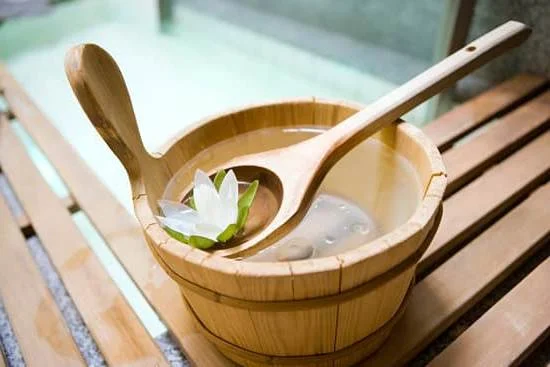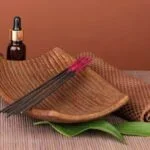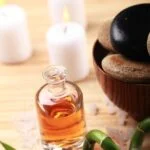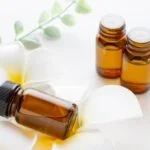Do aromatherapy humidifiers work? Aromatherapy, the use of essential oils and their aromas for therapeutic purposes, has gained popularity in recent years. When combined with a humidifier, which adds moisture to the air, aromatherapy can potentially offer even more benefits. In this article, we will explore the science behind aromatherapy and humidifiers, the potential benefits of using them together, popular essential oils for aromatherapy, how to use aromatherapy humidifiers effectively, and whether there is evidence to support their effectiveness.
Aromatherapy humidifiers are becoming increasingly popular as people seek natural remedies for improving their overall well-being. But how exactly do these devices work? What benefits can they offer? And are there any drawbacks to consider? This article aims to provide a comprehensive understanding of aromatherapy humidifiers and help you make an informed decision about incorporating them into your home.
Throughout this article, we will dive deeper into the science behind aromatherapy and how it interacts with the use of a humidifier. We will also discuss the potential benefits of using aromatherapy humidifiers for improved air quality and enhanced health. Additionally, we will explore various essential oils commonly used in aromatherapy and offer tips on how to select the right scent for your needs.
The Science Behind Aromatherapy
Aromatherapy, also known as essential oil therapy, is the use of aromatic plant extracts to promote physical and psychological well-being. When these natural oils are used in conjunction with a humidifier, the benefits can be amplified due to the combination of increased moisture in the air and the inhalation of the essential oils.
The science behind aromatherapy lies in how our sense of smell affects our brain. When we inhale essential oils, odor molecules travel through our nasal cavity to the olfactory bulb, which is responsible for processing smells.
From there, they travel to the limbic system, which plays a role in emotions, behaviors, motivation, long-term memory, and decision-making. This connection between our sense of smell and our brain creates an opportunity for essential oils to have a profound impact on our mood and overall well-being.
Benefits:
- Reduction of stress and anxiety
- Improved quality of sleep
- Relief from headaches and migraines
To fully understand how aromatherapy works with a humidifier it’s important to consider that when essential oils are dispersed into the air by a humidifier, they not only provide a pleasant scent but also have the potential to purify the air as well. Some essential oils possess antimicrobial properties that can help kill airborne bacteria or viruses.
Overall, combining aromatherapy with a humidifier allows for an enhanced sensory experience that can positively impact both physical health and emotional well-being. Whether it’s creating a relaxing environment for meditation or improving sleep quality, aromatherapy humidifiers have shown promising results in promoting overall wellness.
Benefits of Aromatherapy Humidifiers
Aromatherapy humidifiers are popular for their potential to improve air quality and promote better health. These devices work by dispersing essential oils into the air, where they can be inhaled or absorbed through the skin. The use of aromatherapy has been linked to various health benefits, such as reducing stress, promoting relaxation, and even helping with respiratory issues. When used in conjunction with a humidifier, the effects of aromatherapy can be further amplified.
One of the key benefits of aromatherapy humidifiers is their ability to improve indoor air quality. The essential oils dispersed by the humidifier can help to eliminate airborne pathogens, neutralize odors, and even repel insects. This can create a more pleasant and healthier living environment, especially for those who suffer from allergies or respiratory problems.
In addition to improving air quality, aromatherapy humidifiers can also have a positive impact on mental and emotional well-being. Certain essential oils have been shown to have mood-boosting properties and may help reduce feelings of anxiety or depression. For example, lavender oil is often used for its calming effects, while citrus oils are known for their uplifting qualities. By incorporating these scents into a humidifier, individuals can create a more relaxing and soothing atmosphere in their homes.
| Benefits of Aromatherapy Humidifiers | Improved Air Quality and Health |
|---|---|
| Aromatherapy Helps Reduce Stress | Improved Air Quality Can Benefit Allergy Sufferers |
| Certain Essential Oils Have Mood-Boosting Properties | Creates a More Relaxing Atmosphere at Home |
Popular Essential Oils for Aromatherapy
Aromatherapy humidifiers are popular for their ability to improve air quality and promote a sense of relaxation and well-being in the home. One of the key factors in achieving these benefits is choosing the right essential oils to use with your aromatherapy humidifier. With a wide variety of essential oils available, it can be overwhelming to decide which scents will work best for you.
Lavender is perhaps one of the most popular essential oils used in aromatherapy due to its calming properties. It has been shown to reduce stress and anxiety, making it an ideal choice for those looking to unwind after a long day. Peppermint is another common choice, known for its invigorating and refreshing scent.
This essential oil can help improve mental clarity and boost energy levels. For those seeking a more uplifting aroma, citrus oils such as lemon or sweet orange can provide a mood-boosting effect.
When selecting essential oils for your aromatherapy humidifier, it’s important to consider your personal preferences as well as any specific health concerns or goals you may have. Some essential oils may have specific benefits such as alleviating respiratory issues or promoting better sleep, so it’s worth researching each oil before making a decision.
| Essential Oil | Main Benefits |
|---|---|
| Lavender | Calming, stress reduction |
| Peppermint | Invigorating, mental clarity |
| Lemon/Sweet Orange | Mood-boosting, uplifting |
It’s also important to consider any potential allergies or sensitivities you or your family members may have when choosing essential oils. Experiment with different scents to find what works best for you and enjoy the many benefits that aromatherapy humidifiers have to offer.
How to Use Aromatherapy Humidifiers
Using aromatherapy humidifiers can be an effective way to elevate the ambiance of a space while also promoting relaxation and overall well-being. When utilizing these devices, there are some tips and best practices to keep in mind for optimal results.
Choosing the Right Essential Oil
The first step in using an aromatherapy humidifier is selecting the right essential oil for your needs. Different scents have unique properties that can influence mood and health, so it’s important to consider what benefits you are seeking. For example, lavender is known for its calming effects, while eucalyptus can help with respiratory issues. It’s recommended to do some research on various essential oils and their benefits before making a selection.
Proper Dilution
When using essential oils in a humidifier, it’s crucial to dilute them properly to avoid any adverse effects. Most manufacturers provide guidelines for dilution ratios, which should be followed carefully. Proper dilution ensures that the scent is not overpowering and that the essential oil can disperse effectively in the air.
Cleaning and Maintenance
To ensure the longevity of your aromatherapy humidifier and prevent any contamination, regular cleaning and maintenance are necessary. Follow the manufacturer’s instructions for cleaning the device and changing the water to avoid mold or bacteria buildup. Additionally, be sure to use clean water each time you refill the humidifier to maintain air quality.
Incorporating these tips and best practices into your use of aromatherapy humidifiers can help you maximize their effectiveness while also ensuring safety and proper operation. By choosing the right essential oil, diluting it properly, and maintaining the device regularly, you can enjoy all the benefits that aromatherapy has to offer in your home environment.
Do Aromatherapy Humidifiers Really Work? Examining the Evidence
Aromatherapy humidifiers, also known as essential oil diffusers, have gained popularity in recent years for their potential health and wellness benefits. But the question remains: do aromatherapy humidifiers really work? Let’s examine the evidence to determine the efficacy of these devices.
The use of aromatherapy has been practiced for centuries as a holistic healing treatment. When combined with a humidifier, aromatherapy can have an even greater impact on air quality and overall health. The following points outline the evidence supporting the effectiveness of aromatherapy humidifiers:
Benefits of Aromatherapy Humidifiers
- Improved air quality: Aromatherapy diffusers release essential oils into the air, which can help eliminate airborne bacteria and viruses, reducing the risk of respiratory infections.
- Stress relief: Certain essential oils, such as lavender and chamomile, have been shown to promote relaxation and reduce stress and anxiety.
- Enhanced sleep quality: The soothing scent of lavender oil, in particular, has been linked to improved sleep quality and reduced insomnia.
In addition to these benefits, several studies have shown that using essential oil diffusers can have a positive impact on mood and mental well-being. It’s important to note that while there is evidence supporting the effectiveness of aromatherapy humidifiers, individual results may vary based on personal preferences and sensitivities.
Potential Drawbacks and Considerations
Overuse and Sensitivity
One potential drawback of using aromatherapy humidifiers is the risk of overusing essential oils or causing sensitivity reactions. While the use of essential oils can have many benefits, it is important to use them in moderation.
Overuse of certain oils can cause irritation to the skin, eyes, and respiratory system. Additionally, some individuals may be sensitive or allergic to certain essential oils, so it is crucial to perform a patch test before using any new oil and to be cautious when using aromatherapy around children, elderly individuals, and pets.
Quality of Essential Oils
When using aromatherapy humidifiers, it is important to consider the quality of the essential oils being used. Low-quality or synthetic oils may not provide the same therapeutic benefits as high-quality, pure essential oils. It is advisable to purchase essential oils from reputable sources to ensure their purity and effectiveness. Additionally, some essential oils may interact with medications or medical conditions, so it is crucial to seek advice from a healthcare professional before beginning an aromatherapy regimen.
Maintenance and Cleaning
Another consideration when using aromatherapy humidifiers is the maintenance and cleaning of the device. Essential oils can leave residue that may clog or damage the humidifier if not properly cleaned on a regular basis.
It is important to follow manufacturer’s guidelines for cleaning and maintenance and to use distilled water instead of tap water to prevent mineral buildup in the device. Regular cleaning will also help prevent bacterial growth in the humidifier, which could potentially cause respiratory issues if dispersed into the air.
Conclusion
In conclusion, aromatherapy humidifiers have gained recognition for their potential to improve air quality and promote emotional well-being. The use of essential oils in conjunction with the humidifying effect of these devices can create a more comfortable and pleasant environment in the home. With a better understanding of how aromatherapy works and the benefits it offers, many individuals are turning to these devices as a natural solution for enhancing their living spaces.
While some may still question, “do aromatherapy humidifiers work?” the evidence suggests that they can indeed have a positive impact on both physical and mental health. Studies have shown that certain essential oils used in aromatherapy can help reduce stress, anxiety, and even improve sleep quality. When combined with the moisturizing benefits of a humidifier, this creates an overall more soothing atmosphere that can potentially benefit overall well-being.
When considering potential drawbacks and considerations, it is important to note that not all individuals may respond to aromatherapy in the same way. Some people may have sensitivities or allergies to certain scents, which could cause adverse reactions.
Additionally, while aromatherapy can offer relaxation benefits, it should not be viewed as a standalone treatment for serious medical conditions. Overall, using aromatherapy humidifiers at home can provide a simple and effective way to enhance wellness and create a more enjoyable living environment.
Frequently Asked Questions
What Is the Difference Between a Humidifier and an Aroma Diffuser?
The main difference between a humidifier and an aroma diffuser is their primary function. A humidifier adds moisture to the air to combat dryness, while an aroma diffuser is specifically designed to disperse essential oils into the air for aromatherapy purposes.
What Is the Purpose of an Aroma Humidifier?
The purpose of an aroma humidifier is to combine the benefits of both a traditional humidifier and an aroma diffuser. It not only adds moisture to the air but also disperses essential oils, providing both humidity and pleasant scents for improved air quality and relaxation.
How Often Should I Put Essential Oils in My Humidifier?
It is not recommended to put essential oils directly into a humidifier as it can damage the machine and void its warranty. Instead, use an aroma diffuser specifically designed for dispersing essential oils. If you want to add fragrance to the mist produced by your humidifier, consider using scented water-based solutions made specifically for that purpose.

Are you looking for a natural way to improve your health and wellbeing?
If so, aromatherapy may be the answer for you.





